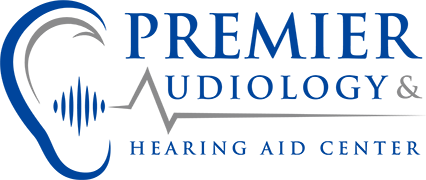The Safe Way to Clean Your Ears and Eliminate Earwax at Home: A Comprehensive Guide
Ear hygiene is an often-overlooked aspect of overall health. While the ears have a natural ability to clean themselves, sometimes excess earwax buildup can occur, leading to hearing difficulties or discomfort. In this article, we’ll delve into the safe methods for cleaning your ears and managing earwax at home. However, it’s crucial to note that severe or persistent issues should be addressed by a healthcare provider for accurate diagnosis and appropriate treatment.
Understanding Earwax: Friend or Foe?
Contrary to popular belief, earwax (or cerumen) is not an unwanted byproduct but serves a critical function. It acts as a natural barrier that prevents dust, bacteria, and other foreign particles from entering the ear canal. Additionally, it has antibacterial and antifungal properties. Problems arise when there is an excessive buildup of earwax, potentially leading to symptoms like hearing loss, tinnitus, or earache.
Safe Methods for Home Cleaning
1. Over-the-Counter Ear Drops
Several OTC earwax removal drops are available that can help soften the earwax. These typically contain substances like hydrogen peroxide, carbamide peroxide, or glycerin. Follow the directions on the package and never use them if you suspect an ear infection, have a perforated eardrum, or have recently undergone ear surgery.
2. Saline Solution
A homemade saline solution can also be effective in softening earwax. Mix a teaspoon of salt in half a cup of warm water and stir until dissolved. Using a dropper, put a few drops into your ear while tilting your head, allowing the solution to penetrate the wax. Wait for a minute and then tilt your head the opposite way to let the solution drain out.
3. Baby Oil or Mineral Oil
Oils can lubricate the ear canal, making it easier for earwax to slide out naturally. A few drops of baby oil or mineral oil can be inserted into the ear using a dropper. Wait for some time to allow the oil to soften the wax, and then tilt your head to remove it.
4. Warm Water Irrigation
After softening the wax, you can use a rubber-bulb syringe to gently irrigate the ear with warm water. This should only be done if you are certain that you don’t have a perforated eardrum or an active ear infection.
Methods to Avoid
Cotton Swabs
While commonly used, inserting cotton swabs into the ear canal can push the earwax further down, exacerbating the problem.
Ear Candling
This method involves placing a hollow candle into the ear canal and lighting it on the other end. Not only is this method ineffective, but it also poses risks like burns and perforated eardrums.
Excessive Cleaning
Your ears need a certain amount of wax for lubrication and protection. Over-cleaning can lead to dry, itchy ears.
When to Consult a Professional
While minor earwax issues can often be safely addressed at home, certain situations require professional intervention:
- Severe pain or hearing loss
- Frequent ear infections
- History of eardrum perforation
- Presence of a foreign object in the ear
- Persistent symptoms despite home treatment
In Summary
Maintaining ear hygiene is an integral part of your overall well-being. While ears are generally self-cleaning, certain conditions may necessitate intervention to remove excessive earwax. A variety of safe and effective home remedies can be employed for this purpose, but it is critical to know when to consult a healthcare provider. By following these guidelines, you can keep your ears clean while preserving their natural ability to protect themselves.
